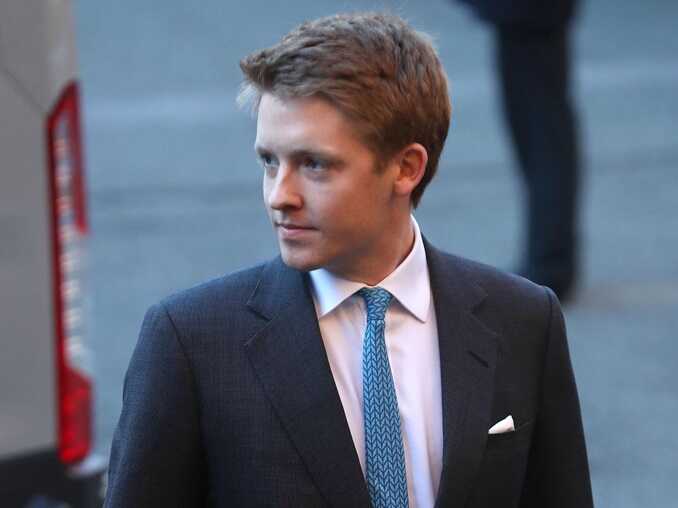Duke of Westminster’s staggering net worth revealed - and how he became richer than King Charles

Hugh Grosvenor, the 7th Duke of Westminster, is richer than his godfather King Charles - by some margin. We explore how he came into such vast wealth and his charitable gestures
Few could imagine billionaire Hugh Grosvenor’s fortune - but how did he aquire such staggering wealth?
The 33-year-old is the richest person under the age of 40 in the UK, and the 14th wealthiest person overall, according to The Sunday Times Rich List. The property tycoon is said to be worth an immense £10bn.
The seventh Duke of Westminster, Hugh will tie the knot with fiancee Olivia Henson today in what has been dubbed the society wedding of the year. And no doubt there will be no expense spared as the newlyweds celebrate with their friends and family.
The groom’s life changed in 2016 when he was just 25 years old. His father Gerald Cavendish Grosvenor, the sixth Duke of Westminster, died suddenly from a heart attack - and at that moment, Hugh became one of the country’s wealthiest landowners. He instantly inherited an immense property portfolio that spans land in the capital’s most prestigious postcodes – including half of Mayfair and 300 acres of Belgravia.
The source of the immense wealth comes from The Grosvenor Group, whose holdings also include the American Embassy, estates in Scotland and Spain, Liverpool city centre, Tokyo apartment blocks, a ’large chunk’ of Silicon Valley, and the entirety of Annacis Island, just off Vancouver. According to Tatler, the Grosvenor family money primarily dates back to the 1600s, when they first began buying land in London.
When it came to his inheritance, Hugh benefited from a centuries-old rule that means peerages only pass down the male line (known as male primogeniture). He has two older sisters, Lady Tamara and Lady Edwina Grosvenor. But when their father died in 2016, the family title went to Hugh, his third child and only son. He also has a younger sister, Lady Viola. The Duke did not have to pay inheritence tax on his fortune because the estate is held in a trust.
Hugh grew up at Eaton Hall, his family’s ancestral seat in Cheshire. He did not study at Eton or Harrow (his father had hated his own Harrovian education), and instead the young Earl Grosvenor went to local private school Mostyn House, then Ellesmere College, the £8,500-per-term boarding school in Shropshire.
He graduated with a bachelor’s degree in Countryside Management from Newcastle University before working as an account manager for sustainability company Bio-bean, a company that turns coffee waste into sustainable products like biofuel.
Despite his immense earth - and the fact he owns more land than his godfather King Charles - Hugh reportedly prefers a low-key life. He is also very generous; during the Pandemic, he donated £12.5 million to the NHS and £1 million to the University of Oxford.
"On behalf of my family and everyone at the Grosvenor Estate, I want to say a huge thank you to all our amazing NHS staff and everyone providing critical frontline services," he said at the time.
"We are all humbled and incredibly grateful that you are working tirelessly to keep us safe and keep the country functioning. NHS staff and key workers don’t work in isolation. They have children and families whose health and wellbeing will also be highly impacted by this crisis. As they keep us safe, I want to help provide as much support to them and their families as we can."
One of the rare occasions Hugh did make headlines was back in 2012 when he celebrated his 21st birthday with a party estimated to have cost around £5m, thrown by his parents at Eaton Hall. Some 800 guests were in attendance, including Prince Harry, with Michael McIntyre and Rizzle Kicks providing the entertainment.
Read more similar news:
Comments:
comments powered by Disqus

































